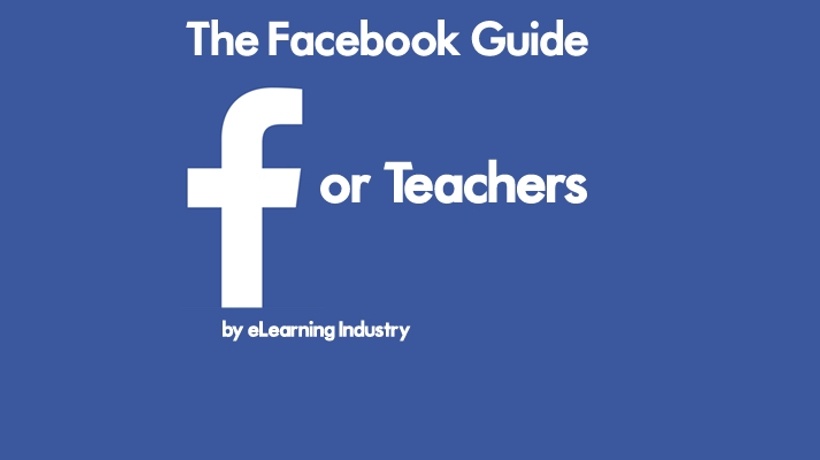Using Social Media In eLearning: 9 Facebook Features To Consider
Is your remote team having trouble staying on the same page? Is your audience able to connect with their peers and reap the benefits of social learning? Facebook is a valuable tool before and after you launch your eLearning course. Your L&D team can use it to collaborate and communicate during the eLearning course development process, while online learners have the chance to provide feedback and share experiences from anywhere in the world. These 9 Facebook features can help you manage your next eLearning project and create more engaging eLearning courses.
1. Live Video
YouTube meets Facebook, but even more interactive. Your eLearning team can host brainstorming and feedback sessions, or meet with clients and stakeholders who are halfway across the world, no air fare required. In the case of online learners, Facebook video gives them the power to ask questions directly and interact with their online instructors. They simply type their comments during the live event, which the host can see in real time. Facebook live video may even take the place of your current video conferencing platform if you only require basic functions.
2. Facebook Events
People may forget about upcoming meetings, eLearning courses, and other notable happenings if there’s already a lot on their minds. Facebook events are characteristic of the Facebook features that allow you to announce your eLearning event to certain individuals and groups, as well as collect RSVPs so that you can plan ahead. You can post an event photo, share the location, and add keywords to help people find your eLearning event announcement. Another perk is being able to track audience engagement and promote your eLearning event more effectively.
3. Facebook Groups
Closed Facebook groups are among the Facebook features that help to create a sense of online learning community and encourage online learners to participate in the online discussion. Public groups allow you to gain exposure for your eLearning course and bring new followers into the conversation. For example, create a Facebook group specifically for your next eLearning event so that attendees can share thoughts during and after the eLearning session. Keep in mind that public group posts are visible on the internet. Thus, you may want to start a closed Facebook group to encourage open dialogue and make online learners feel more comfortable.
4. Facebook Pages
Pages are another Facebook feature that benefits both parties. Your L&D team is able to create a page to promote eLearning courses and spread the word about eLearning events, while online learners can start their own pages to share interests and interact with peers. For example, an individual creates a page that explores his/her passion for product knowledge or sales skills. Others follow the page to receive tips and express their opinions regarding the admin’s articles. There’s also the option to create a separate page for every online training course or group to centralize communications. For instance, a dedicated page for your customer service online training that promotes new modules or online training activities.
5. Polls
Facebook polls are one of the Facebook features that serve as great feedback tools helping you collect Big Data for your eLearning project. Online learners complete these quick online surveys to share their insights and identify areas for improvement. For example, a Facebook poll reveals that a high percentage of your audience needs more multimedia to improve comprehension, or they have trouble navigating the eLearning course due to a cluttered course layout or intrusive graphics. You can even uncover new topics you might consider for future eLearning courses.
6. Private Messaging
Some conversations should be kept out of the public eye. Facebook private messenger gives online collaborators and learners, alike, a place to discuss sensitive matters. For example, the eLearning Project Manager is able to privately communicate with the graphic designer or Subject Matter Expert to improve their work practices. In addition, online learners can speak with online instructors or facilitators if they have trouble with the coursework. The online instructor is able to provide recommendations and point them in the right direction.
7. Reviews and Ratings
Of all Facebook features, this one is primarily for your eLearning team. Specifically for when they’re looking for products or services for eLearning content development. For example, a content creator or eLearning authoring tool vendor who they’re unfamiliar with. Ratings and reviews allow them to make a more informed decision, as they can see what others have to say about the eLearning content provider or product. However, your audience can also use this feature to look into your organization. For instance, they want to read about past learners’ experiences before they enroll in your eLearning course.
8. Scheduled Posts
You don’t have to post your content immediately. In fact, your eLearning team can schedule multiple eLearning articles in advance to maximize efficiency. For instance, schedule an eLearning article for every Monday to ensure that your organization’s page stays active. You’re also able to manage your eLearning articles and make revisions when necessary. For example, you have to change the guest speaker or discussion topic in your eLearning event announcement that’s scheduled for next month.
9. Auto Translate
One of the most helpful Facebook features is the built-in auto translator that accommodates a worldwide audience, not to mention a geographically dispersed eLearning team who needs to communicate in their native tongue. The platform shows the eLearning article in its original form with a translation icon at the bottom. Online learners or collaborators simply click the icon to read the eLearning article in their native language. Granted, some things do get lost in translation and you may still need to hire an eLearning translator to prevent confusion.
One of the best things about all these Facebook features is that they’re free. There is no need to download any software or purchase licensing fees. Your L&D team can communicate with ease and your audience gets to participate in lively online discussions and exchange valuable information.
Are you thinking about starting a closed Facebook group that offers your online learners more private online discussions? Read the article 7 Tips To Use Facebook Groups In eLearning to discover the best tips for using use Facebook Groups in your eLearning course design.








